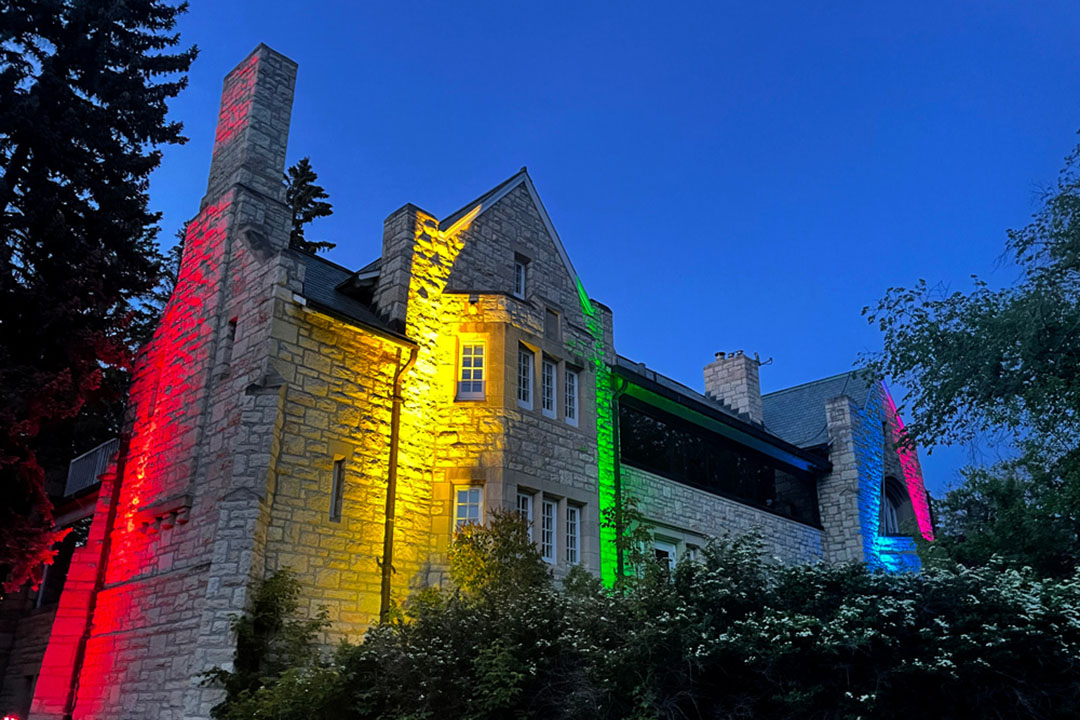
Researchers collaborate with community members to update queer history timeline
USask project will utilize and complement existing resources housed in the Neil Richards Collection of Sexual and Gender Diversity at the University Library
By Shannon BoklaschukA new project at the University of Saskatchewan (USask) aims to fill in gaps in the province’s queer history by creating an updated 2SLGBTQIA+ timeline in collaboration with community stakeholders.
The project—led by USask’s Social Innovation Lab on Gender and Sexuality—complements, and builds upon, an existing chronology and the thousands of resources housed in the Neil Richards Collection of Sexual and Gender Diversity at the University Library. The collection of books, periodicals, videos, and other items was established in 2010 and named in honour of Neil Richards, a community activist and longtime USask library employee who dedicated his life to the preservation of queer history.
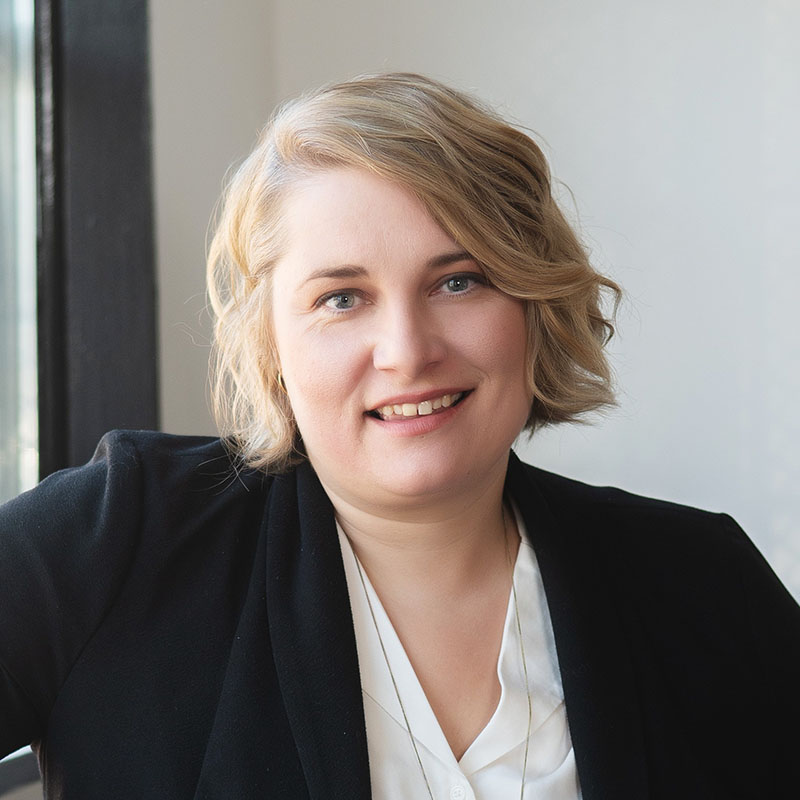
Dr. Rachel Loewen Walker (PhD), project director of the Social Innovation Lab, said the roots of the current 2SLGBTQIA+ timeline project stem back to 2013, when she began serving as the former executive director of OUTSaskatoon. During Loewen Walker’s time at the community-based organization, Richards would visit to collect posters, pamphlets, and other items for preservation.
“He was a big part of the work around ensuring that the history of the queer community was sustained, and that those stories continued to be told,” said Loewen Walker.
When Richards passed away in 2018, the bulk of his collection was donated to the University Library. In years prior to his passing, conversations had begun around compiling a second iteration of the queer history timeline he had written—titled Celebrating a History of Diversity: Lesbian and Gay Life in Saskatchewan, 1971 – 2005 A Selected Annotated Chronology—to capture important stories and to expand the chronology to years after 2005. Loewen Walker was particularly interested in augmenting the timeline with stories about Two-Spirit and transgender people as well as women’s involvement in the queer community.
“It just stuck with me that it was something that we couldn’t drop the ball on,” said Loewen Walker, who now teaches in the women’s and gender studies program in the Department of Political Studies in USask’s College of Arts and Science. “We didn’t have the capacity to do it when I was at OUTSaskatoon, but once I came to the university and had funding, it was one of the first projects that was on my mind to get rolling.”
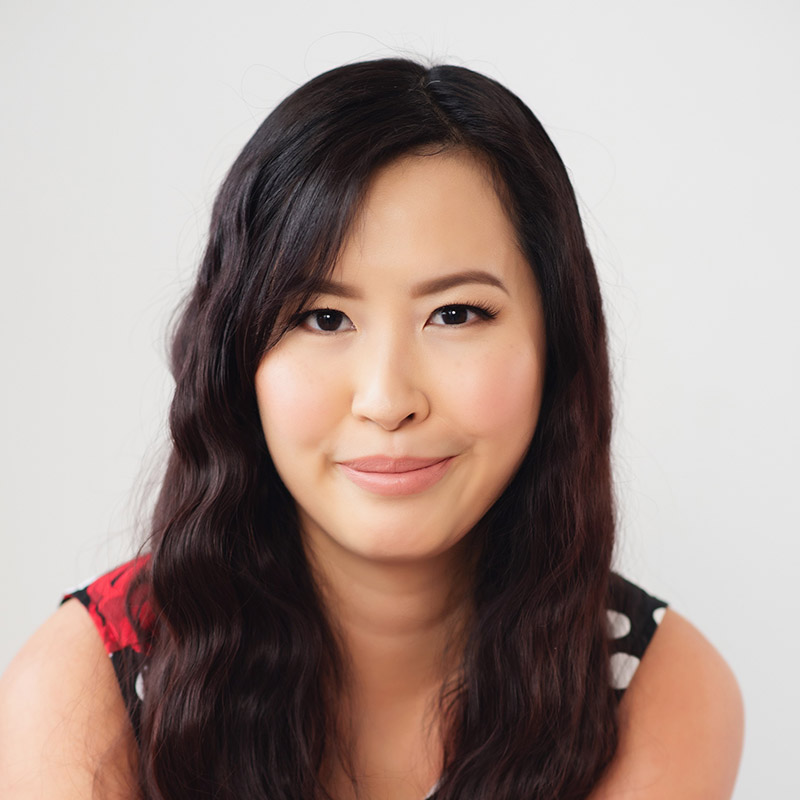
The Social Innovation Lab is funded through a Social Sciences and Humanities Research Council (SSHRC) Partnership Grant. As part of the work underway in the lab, Claire Sereda-McShane, a recent USask graduate, is collaborating on the queer timeline project with Loewen Walker and Ann Liang, an assistant librarian with the University Library.
Dr. Patti McDougall (PhD), USask’s deputy provost, said the work led by the Social Innovation Lab will impact future generations. While June—Pride Month—is a time of celebration, it is also about advocacy, activism, and the continued pursuit of social justice, and the lab’s project showcases that vital history in Saskatchewan, she said.
“Enhancing and updating the 2SLGBTQIA+ timeline is a way to honour and remember the lived experiences of members of the queer community,” said McDougall, the equity, diversity, and inclusion (EDI) lead in the Office of the Provost and Vice-President Academic. “This project will ensure that these important stories are told and preserved for years to come.”
Liang and Loewen Walker first connected on the project last year when the University Library was in the process of creating videos to promote the Neil Richards Collection. The library aimed to feature people in the videos who work closely with the collection, so Loewen Walker was invited to take part. That was when Liang and Loewen Walker began talking about developing an updated queer timeline that could be made available to the campus community, and far beyond, as an online resource.
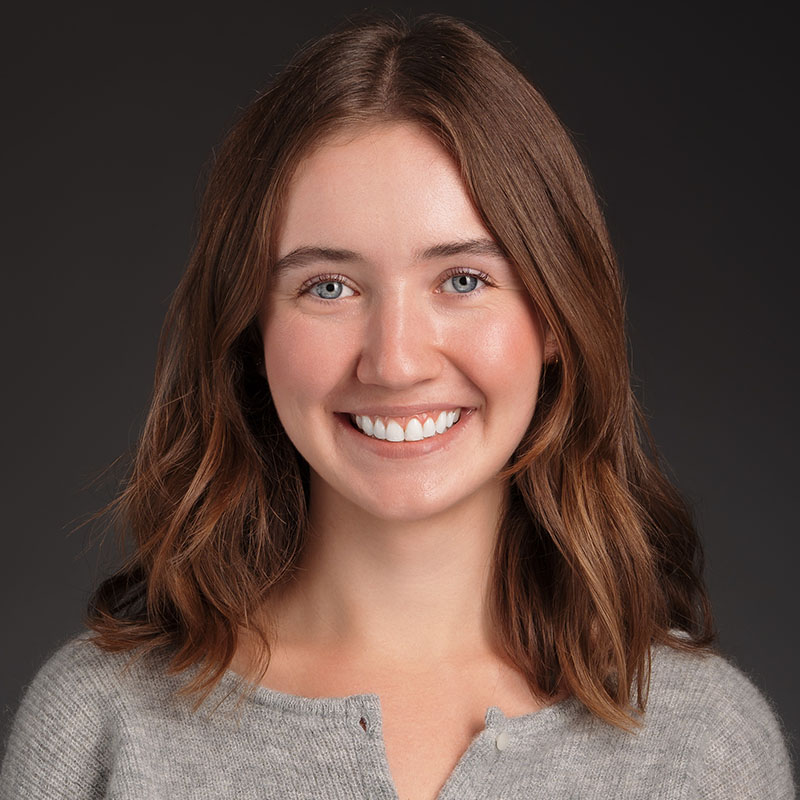
Sereda-McShane began working on the timeline project last September when she was studying at USask as a psychology student in the College of Arts and Science. Along with Loewen Walker and Liang, Sereda-McShane has been looking for ways to engage members of the community in the initiative. An example of this occurred on June 13, 2023, when representatives from the Social Innovation Lab and the University Library went to the Western Development Museum in Saskatoon to attend Spark Your Pride, an annual festival celebrating the lives of members of Saskatchewan’s queer community. Visitors were invited to bring stories and memorabilia to the museum to share with others during the festival’s Show and Tell With Pride event.
As part of the Spark Your Pride activities, Liang, Loewen Walker, and Sereda-McShane invited community members to help tell Saskatchewan’s queer history from the years 2005–2023 by sharing their stories and memories. The researchers brought with them a 30-foot piece of paper, pre-populated with dates and key events, to inspire people to participate by adding their own stories and recollections. The community members’ stories will be included in the updated queer timeline, while the paper document itself will be permanently added to the Neil Richards Collection of Sexual and Gender Diversity.
Dr. Airini (PhD), USask’s provost and vice-president academic, said the timeline project and its community outreach initiatives align with the aspirations outlined in the University Plan 2025, including Productive Collaboration.
“At USask, we believe the world needs a university in which research and innovation are inspired by and accountable to community partners,” said Airini. “The Social Innovation Lab’s queer timeline project brings this aspiration to life. It’s a wonderful example of our university working with, and for, the communities we serve.”
Liang said the overall goal of the project is to create a more inclusive, interactive online timeline that features digitized resources from various sources, including the Neil Richards Collection. That will ultimately make the materials in the collection more accessible to USask students and researchers, as well as to the larger community beyond campus.
“We’re hoping to make it more visual and get some of those archival materials out there,” she said.
Sereda-McShane, who will continue to work on the project throughout the summer, has been examining documents to feature in the updated timeline, with a focus on the years after 2005 and filling in gaps in the pre-2005 chronology. She has also been examining online resources, including media coverage from smaller newspapers across Saskatchewan, to ensure rural stories and voices are included.
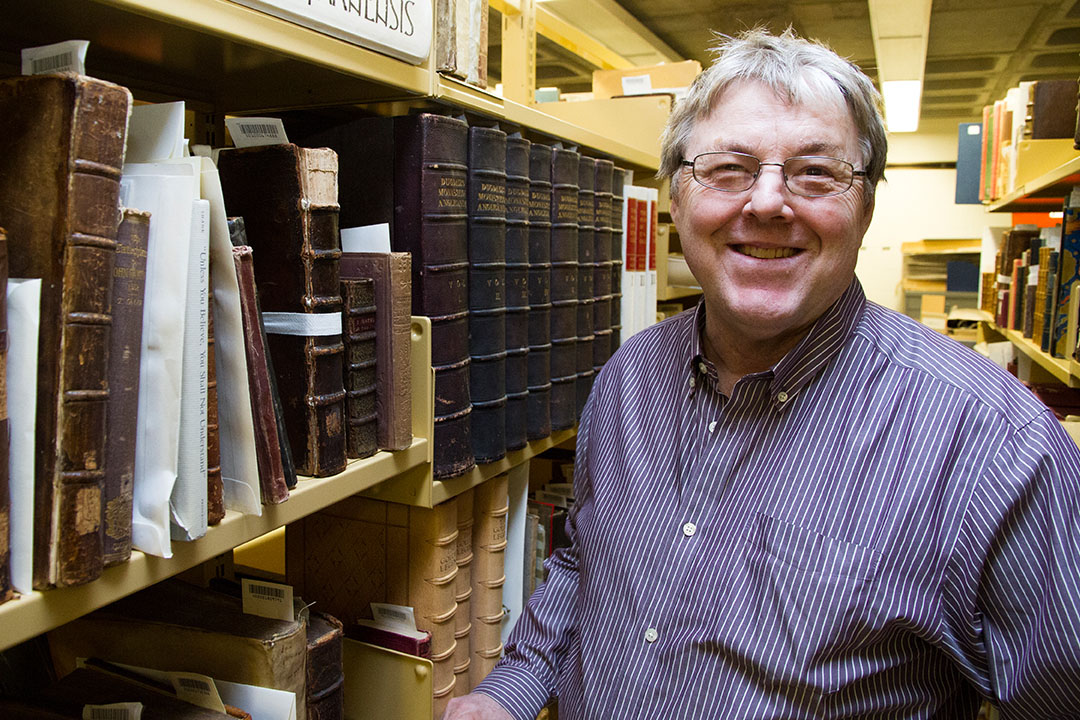
In compiling the documents, Sereda-McShane has been struck by the legal changes that have occurred relatively recently in Saskatchewan. For example, the Saskatchewan Court of Queen’s Bench ruled same-sex marriage to be lawful in the province less than 20 years ago, in 2004.
“A lot of legal changes have happened so recently,” she said. “It’s quite surprising.”
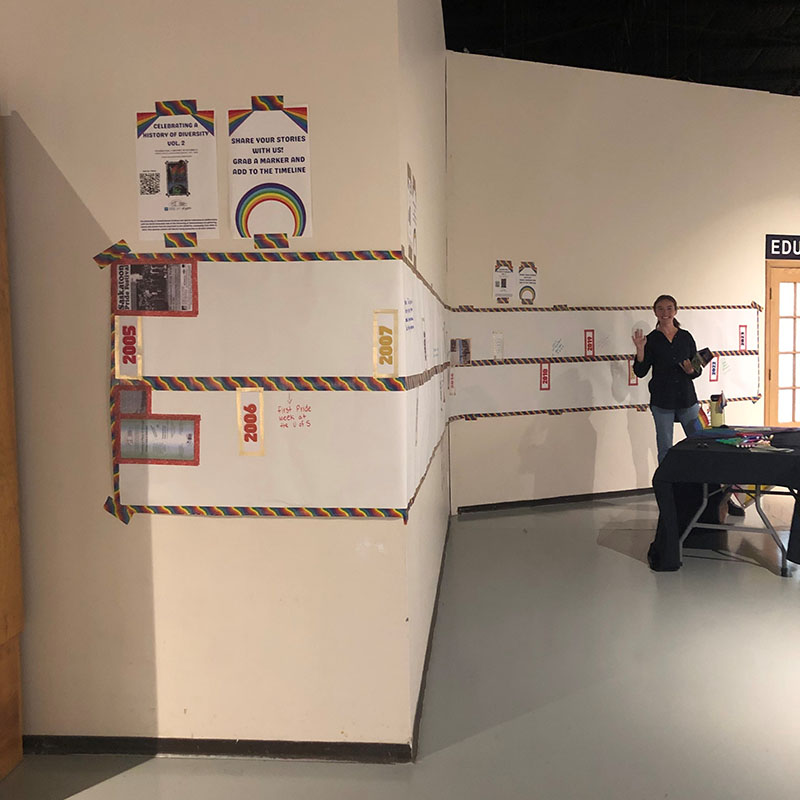
As the timeline project takes shape, the researchers will continue to seek input from the community. Members of the public interested in reviewing the revised timeline or adding events and stories to it can email rl.walker@usask.ca.
For Loewen Walker, it is important that Saskatchewan’s queer history continues to be well documented. In her previous experiences working with queer, transgender, and Two-Spirit movements in other Canadian provinces and at the national level, she has observed that “the Prairies really get left out of a lot of those conversations.” However, Richards’ previous chronology and the important work done by USask historian Dr. Valerie Korinek (PhD) have demonstrated that Saskatchewan “has consistently punched above its weight in terms of really leading the way on some very big social, political, and human rights issues for the queer community,” she said.
“I just think it is so powerful and important to tell the stories. It’s powerful because it’s inspiring and it shows us the fierce leadership of our community, and it reminds us of just what is possible,” she said.
Together we will create inspired places for people to address the challenges of the future. We invite you to join by supporting visionary spaces at USask.

